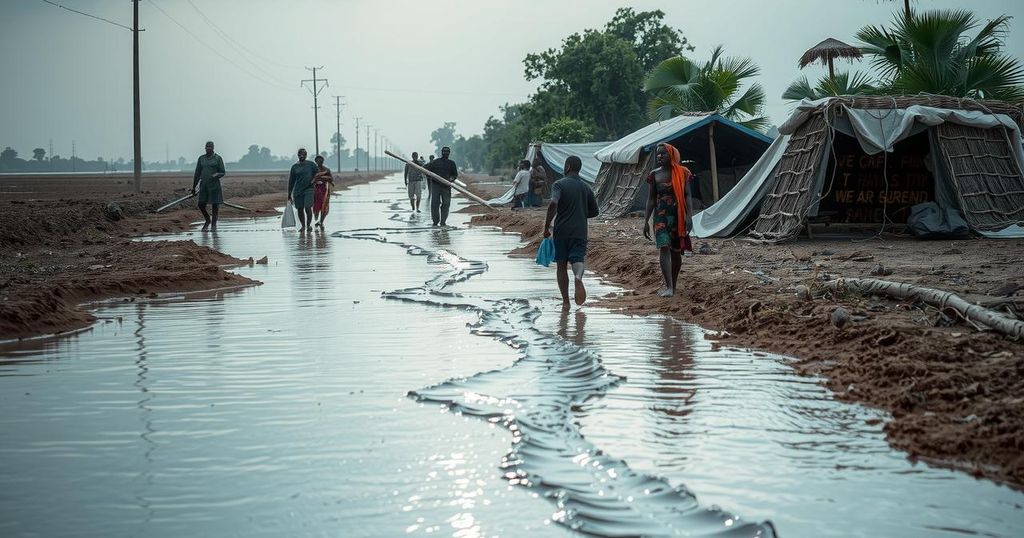Flooding in South Sudan has become a recurring emergency, displacing tens of thousands who now live on the scant high ground along the Jonglei Canal. With seasonal floods overwhelming communities around the Sudd wetland, the impacts have been devastating, including submerged villages and threats from poisonous snakes, complicating access to healthcare services. These challenges emphasize the need for improved disaster response strategies.
In South Sudan, the annual occurrence of flooding has escalated into a persistent crisis, displacing tens of thousands of individuals who now rely on precarious settlements located on the scant high grounds of the Jonglei Canal. Historically, communities residing around the Sudd—Africa’s largest wetland—have adjusted to seasonal floods as a key aspect of their pastoral lifestyle. However, the relentless expansion of the swamp continues to inundate villages, devastate agricultural lands, and decimate livestock populations. Some residents face the harrowing task of navigating treacherous waters, where venomous snakes pose a significant threat, in order to reach medical assistance, often wading through floods for hours on end.
The ongoing flooding crisis in South Sudan is tied to environmental changes and exacerbated by various socio-political challenges in the region. The Sudd wetland, central to the area’s ecosystem, has historically provided both sustenance and livelihood for local communities. Seasonal floods, while part of the local culture for centuries, have become increasingly problematic due to climate change, leading to a cycle of displacement, health risks, and loss of livelihoods as more individuals are forced to adapt to an aquatic environment.
The plight of the South Sudanese highlights the urgent need for enhanced disaster management and support for affected communities. As flooding continues to wreak havoc annually, efforts must be directed toward developing sustainable solutions to safeguard livelihoods and offer reliable access to essential services. Overall, the situation underscores the interconnectedness of environmental factors and human resilience in the face of adversity.
Original Source: apnews.com






